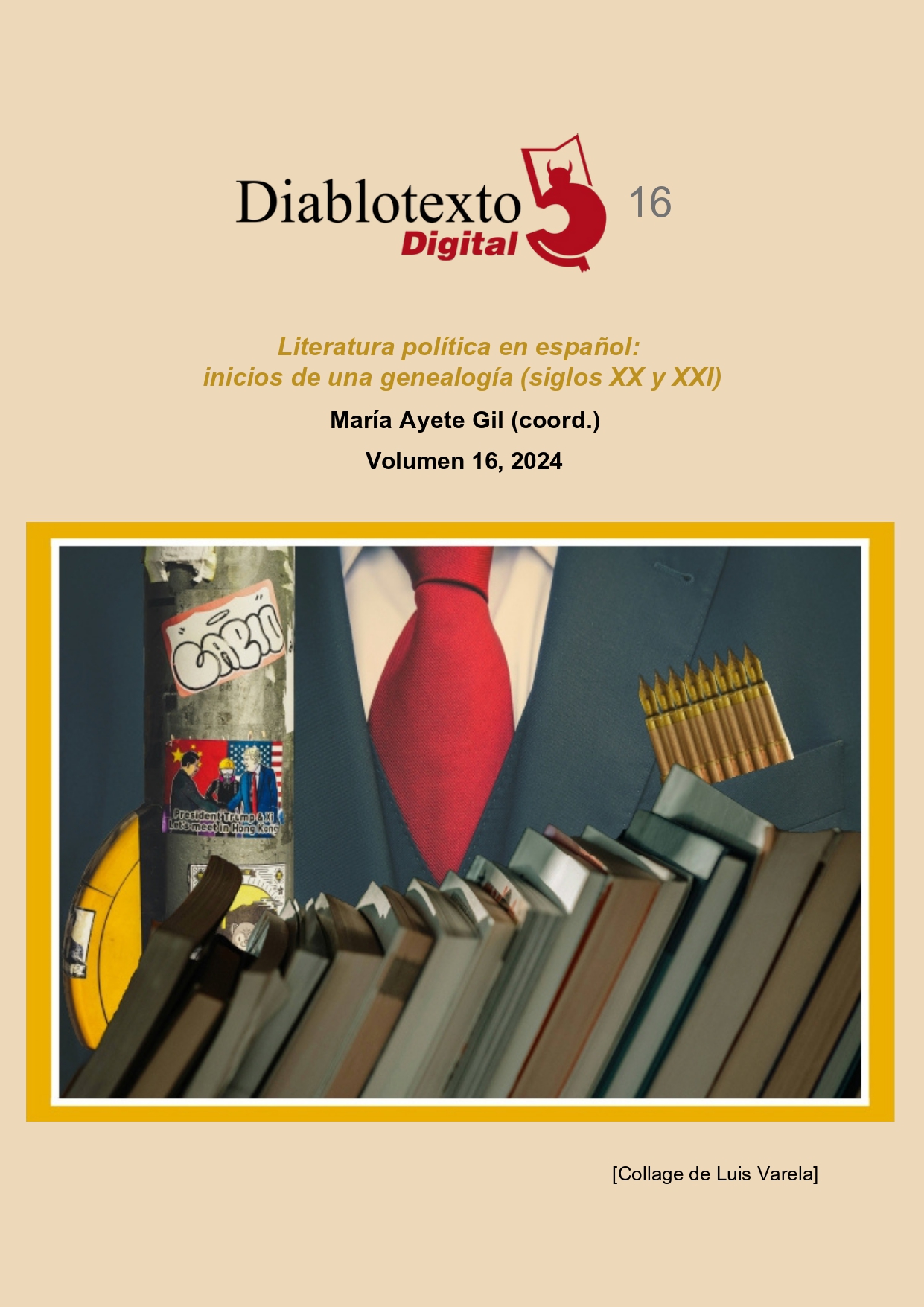The pedagogical theatrical project of Teatro Yeses: testimonial sensitivity, recognition and bidirectional reinsertion in La balada de la cárcel de Circe (2017)
DOI:
https://doi.org/10.7203/diablotexto.16.28912Keywords:
Theatre Pedagogy, Political Theatre, Elena Cánovas, Epistemic Injustice, prisoners Abstract
Abstract
The work of Elena Cánovas fulfills an important political and social task, it makes known the experience buried under institutionalized history. Miranda Fricker (2007) argues that the institution perpetuates epistemic injustice, which generates a rupture in the trust of marginalized subjects, distancing them from the political community. As a consequence, it attacks the human dignity of the subject and disavows it as the bearer of valid experiences. In addition, the lack of resources of socially marginalized people hinders their ability to defend themselves against social evil, avoidable evil (Arteta, 2010). In this paper I study the device that Elena Cánovas sets up with the theatrical piece La balada de la cárcel de Circe (2017) to provide tools to women in a regime of deprivation of liberty, as well as to produce an ethical conscience in the spectator that facilitates their encounter with otherness.
 Downloads
Downloads
 References
References
ARTETA, Aurelio (2010). Mal consentido. La complicidad del espectador indiferente. Madrid: Alianza Editorial.
AYETE GIL, Maria (2023). Ideología, poder y cuerpo. La novela política contemporánea. Manresa: Bellaterra.
BENJAMIN, Walter (1934). El autor como productor. París: Instituto para el estudio del fascismo.
BRONCANO, Fernando (2011). La estrategia del Simbionte. Cultura material para nuevas humanidades. Salamanca: Delirio S.L.
CÁNOVAS, Elena (1999). “Actrices en libertad provisional”, Educación Social, n.º 13, pp. 98-104.
CÁNOVAS, Elena (2017). “La balada de la cárcel de Circe”. En Milagros Sánchez
Arnosi (ed.), Teatro Yeses: conciencia, voluntad y coraje. Madrid: Fundamentos, pp. 79-124.
FRICKER, Miranda (2007). Injusticia epistémica. El poder y la ética del conocimiento. Ricardo García Pérez. España: Herder.
GRAMSCI, Antonio (1974). Antología. Madrid: Siglo XXI.
NICHOLSON, Helen (2005). Applied drama. The gift of theatre. Nueva York: Palgrave Macmillan.
QUERO, María José (2013). Los públicos de la cultura. Cádiz: Universidad de Cádiz.
RANCIÈRE, Jacques (2010). El espectador emancipado. Ariel Dilon. Buenos Aires: Manantial SRL.
SHKLAR, Judith (2013). Los rostros de la injusticia. Alicia García Ruíz. Barcelona: Herder.
SÁNCHEZ ARNOSI, Milagros (2017). “Yeses y Elena Cánovas: historia de un
vuelo”. En Milagros Sánchez Arnosi (ed.). Teatro Yeses: conciencia, voluntad y coraje. Madrid: Fundamentos, pp. 8-54.
VIEITES, Manuel F. (2016). “Trabajo Social y teatro: considerando las intersecciones”, Cuadernos de Trabajo Social, vol. 29, n.º 1, pp. 21-31.
Downloads
Published
How to Cite
-
Abstract59
-
PDF (Español)21
Issue
Section
License
Licencia de reconocimiento de Creative Commons “Reconocimiento - No Comercia l- Sin Obra Derivada
Authors who publish with this journal agree to the following items:
The authors will keep their copyright and guarantee the journal the right of first publication of their work, which will be simultaneously subject to the Creative Commons license that allows third parties to share the work indicating its author and its first publication in the journal. The authors may adopt other non-exclusive license agreements to distribute the version of the published work (e.g., depositing it in an institutional telematic file or publishing it in a monographic volume), with an acknowledgment of its initial publication in this journal. The authors are allowed and encouraged to disseminate their work through the Internet (e.g., in institutional telematic archives or on their website) before and during the submission process, which can produce interesting exchanges and increase citations of the published work. (See Effect of Open Access)




